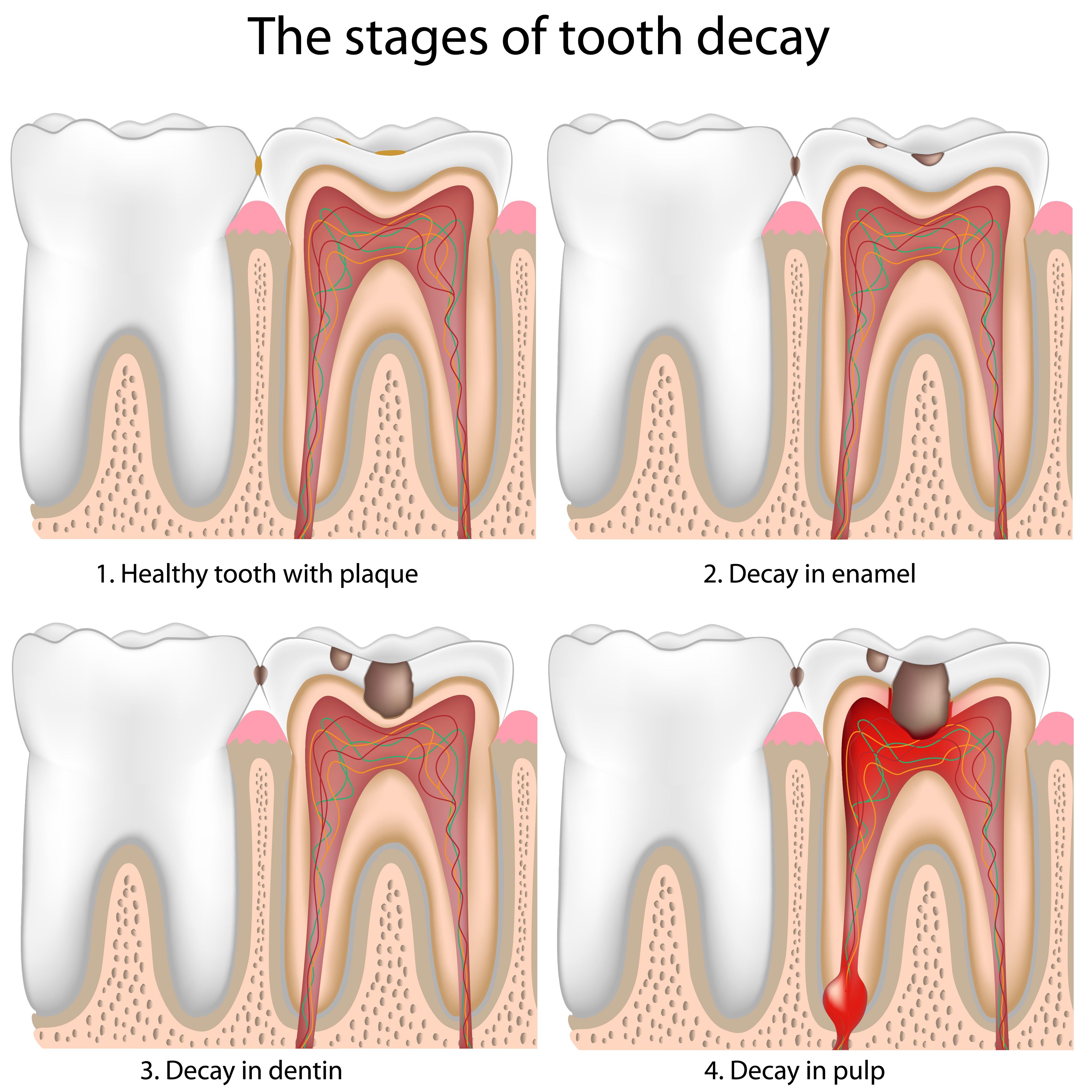Understanding the Five Stages of Tooth Decay
 Imagine biting into your favorite sweet treat after a long day at the office. However, instead of immediate satisfaction, you are met with shooting pain inside your mouth. This may be a sign of tooth decay. When this occurs it’s important to schedule a consultation with your dentist as quickly as possible.
Imagine biting into your favorite sweet treat after a long day at the office. However, instead of immediate satisfaction, you are met with shooting pain inside your mouth. This may be a sign of tooth decay. When this occurs it’s important to schedule a consultation with your dentist as quickly as possible.
At Gooch Family Dental in Birmingham, AL, we provide routine dental cleanings and examinations to treat and address the five stages of tooth decay. Knowing what they are in advance, along with the signs and symptoms to be aware of, can prevent further damage from occurring. If tooth decay is detected during your examination, our doctors provide a variety of restorative dentistry treatments, including dental fillings, to help you maintain your smile.
White or Brown Spots
To understand the different stages of tooth decay, it’s important to first have a good understanding of the anatomy of a tooth. Each tooth is made-up of enamel (outer structure), dentin, and a pulp chamber (inner structure). As the hardest substance in the body, tooth enamel contains a high level of minerals in order to protect the internal tooth structures.
The initial stage of tooth decay is demineralization, the development of white or brown spots on the surface of the enamel. Because this stage is often undetectable, especially when teeth in the back of your mouth are affected, it’s important to attend routine examinations every six months. During your examination, the doctor will be able to detect these spots with the help of X-ray technology.
At this stage, conservative treatments can often be recommended to encourage remineralization, such as limiting sugary foods, following a detailed oral health care regimen, and rinsing with fluoride or having protective dental sealants applied to your teeth.
Enamel Decay
As the acids from food and bacteria remain on teeth, they can begin to eat away at the enamel, causing holes within the surface of your tooth. Once the enamel has been jeopardized in this way, a dental filling will be required to remove the decay and reinforce the structural integrity of the tooth.
Dentin Decay
If a cavity goes untreated, it will continue to penetrate the underlying layers of your tooth. Once the dentin layer is affected, you will start to experience pain. The level of pain varies from patient to patient, but can range from a dull ache to continuous shooting pain, especially when chewing or biting down. Depending on the size of the cavity, the doctor will recommend a dental filling, inlay, onlay, or dental crown to prevent further damage from occurring.
Pulp Chamber Decay
Once the cavity reaches this stage, there is no reversing the damage or repairing the tooth with traditional methods. The pulp chamber houses the nerves, blood vessels, and soft tissues of the tooth that reach the roots of the tooth. Patients with pulp decay often experience extreme sensitivities to hot and cold followed by severe pain. Root canal therapy is the only option to restore your tooth and prevent an extraction. During root canal therapy, the inner pulp is removed and replaced with a material known as gutta-percha. A dental crown is then placed over the tooth to reinforce the tooth’s structure.
Abscess Formation
If pulp decay goes untreated, the infection will continue to travel down the center of the tooth to the tip of the root causing an abscess. An abscessed tooth is generally characterized by debilitating pain, pus, gum swelling, and jaw pain. Once the infection reaches this stage, your surrounding teeth are in jeopardy of being infected.
Patients are also susceptible to gum disease, jawbone damage, and severe physical conditions. At this stage, a tooth extraction is typically the only treatment available. Our doctors provide a variety of tooth replacement options, including dental bridges and dental implants.
Are You in Pain?
If you are experiencing any type of dental sensitivity or pain, it’s important to schedule an appointment with the dentist to protect your overall oral and physical health. To schedule your consultation, contact our office online or give us a call at (205) 545-8001.



